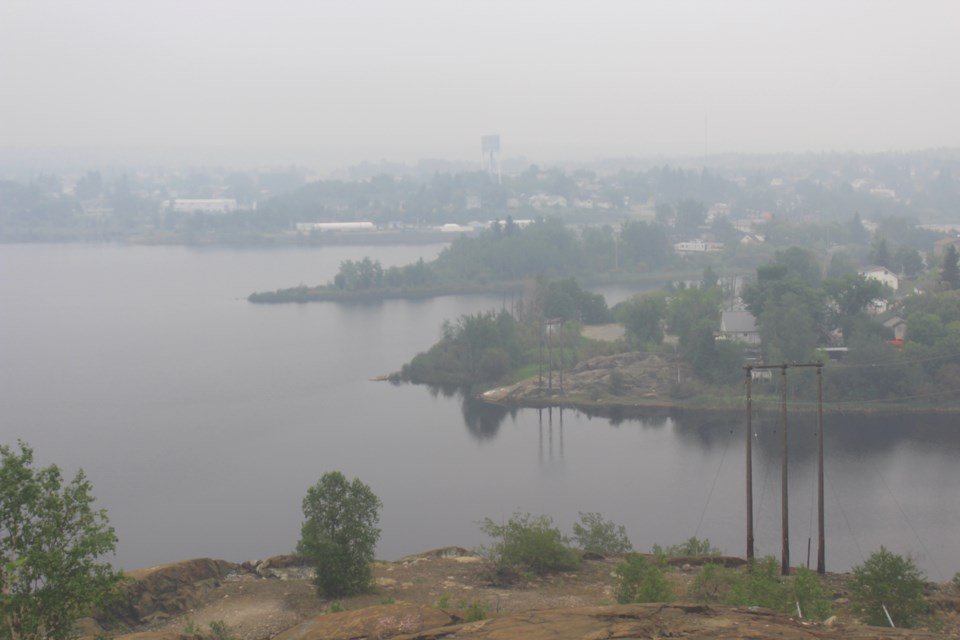If you think it's smokier than normal outside today, you're absolutely right. Due to converging smoke patterns from several forest fires, Flin Flon has the among the worst air quality of any community in Canada today.
As of 2 p.m., Flin Flon's air quality index (AQI) is 224, ranking as "very unhealthy" according to air quality measurement website WAQI.info. Air quality website IQAir has Flin Flon's AQI as 223 and has only one community in Canada with worse air - Revelstoke, BC.
For context, any AQI over 100 is considered to be "unhealthy for sensitive groups". By contrast, air quality in Windsor, Ontario - ranked as the city with the most polluted air in Canada - has an AQI of 51 July 21.
For July 21, no other areas in Canada have an AQI as high as Flin Flon's. Few communities in the United States have a higher AQI reading than Flin Flon, either - the only region with worse air in the U.S. is northern California in regions near active fires. Even the air in Los Angeles, consistently cited as the city with the most polluted air in the U.S., has an AQI between 50 and 70.
According to a fire smoke forecast from Firesmoke.ca, the cause for the heavy smoke is converging smoke from fires in southeastern Manitoba, from northern Saskatchewan and from further west. That smoke has combined with smoke from fires burning near Flin Flon and is now circulating over northern Manitoba. According to current wind patterns, the smoke is expected to ease up overnight, then return Thursday before easing up in the late afternoon Thursday and into the weekend.
An Environment Canada air quality statement is still in effect for the area, as well as most of Manitoba and Saskatchewan. All of northwest Manitoba and northeast Saskatchewan, including Flin Flon, Creighton, Denare Beach, Pelican Narrows, Sandy Bay, Snow Lake and other communities, are covered by the statement.
"Elevated pollution levels are expected or occurring. Forest fires over northwestern Manitoba and northeastern Saskatchewan are producing periods of reduced visibilities and poor air quality in smoke. Winds are quite light under a ridge of high pressure, and localized areas of poor air quality will continue near the many fires burning in the region," reads the air quality statement.
"Due to the smoky conditions, individuals living in or travelling to the above noted areas are advised to be aware of potential health concerns that can be associated with current air conditions. In these current conditions, even healthy individuals may experience sore eyes, tears, coughing and a runny nose."
People affected by the smoke are asked to limit time and activity outdoors, reduce strenous physical activity, to stop activity when having trouble breating, to stay indoors or head to areas with cleaner air, to turn off furnaces and air conditioners that can draw smoke indoors and to avoid smoking or burning other materials. Young children, older people and anyone who is pregnant, has asthma or heart or lung conditions is asked to limit any exposure at all to smoke.




